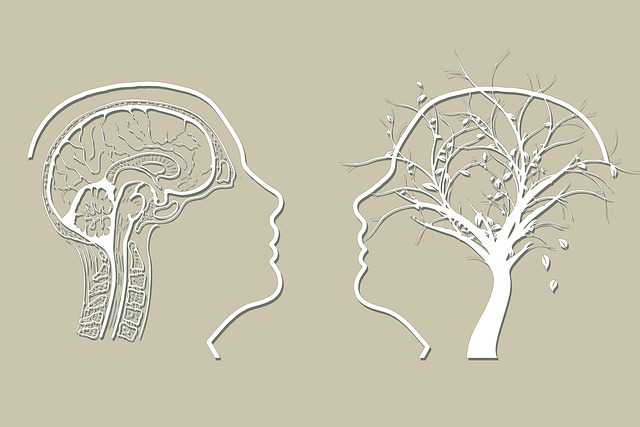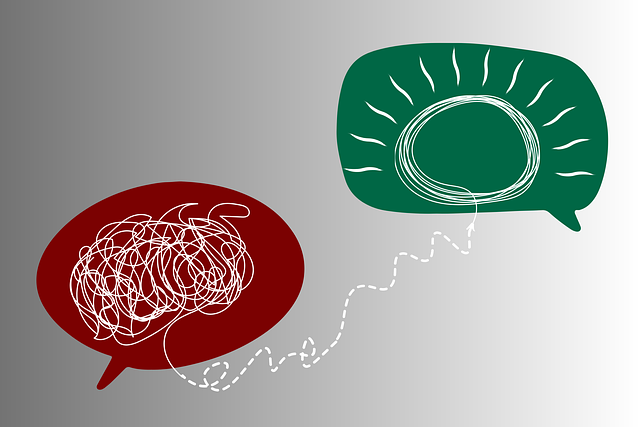Longmont Obsessive Compulsive Disorder (OCD) Therapy offers specialized treatment using evidence-based methods like Cognitive Behavioral Therapy (CBT) and Exposure and Response Prevention (ERP) to address complex OCD symptoms. They focus on early intervention, emotional well-being, and burnout prevention for healthcare providers. Longmont's innovative mental health initiatives, including the Mental Wellness Podcast Series, enhance public awareness and accessibility to resources for OCD diagnosis and support. Through tailored therapies, Longmont OCD Therapy empowers individuals to manage their condition effectively, improving quality of life and fostering inner strength.
Mental illness diagnosis accuracy is a critical aspect of patient care, especially for conditions like Obsessive Compulsive Disorder (OCD). This article delves into the challenges surrounding OCD diagnosis and explores innovative solutions. We examine Longmont’s efforts to enhance diagnosis accuracy through advanced therapeutic approaches. By understanding OCD symptoms and their impact, we can better support individuals struggling with this condition, offering effective therapy options such as Longmont Obsessive Compulsive Disorder Therapy.
- Understanding Obsessive Compulsive Disorder (OCD): Symptoms and Impact
- The Current Challenges in OCD Diagnosis Accuracy
- Innovative Approaches to Enhance Diagnosis: Longmont's Efforts
- Supporting Individuals with OCD: Effective Therapy Options
Understanding Obsessive Compulsive Disorder (OCD): Symptoms and Impact

Obsessive Compulsive Disorder (OCD) is a mental health condition characterized by intrusive thoughts and repetitive behaviors that individuals feel compelled to perform. The symptoms can significantly impact daily life, causing severe anxiety and distress. Individuals with OCD may experience obsessions, such as an overwhelming fear of contamination or a need for symmetry and order, leading them to engage in compulsive actions like excessive handwashing or checking rituals.
Longmont Obsessive Compulsive Disorder Therapy focuses on helping individuals manage these symptoms through various evidence-based approaches. Cognitive Behavioral Therapy (CBT) is commonly used, teaching patients to recognize and challenge obsessive thoughts while learning coping strategies. Promoting emotional well-being involves not only managing symptoms but also implementing burnout prevention strategies for healthcare providers treating OCD, as the condition can be demanding on both patients and caregivers. Stress management workshops organized within the community or workplace can offer valuable tools for navigating the challenges associated with OCD, fostering resilience, and enhancing overall stress reduction techniques.
The Current Challenges in OCD Diagnosis Accuracy

The diagnosis of Obsessive Compulsive Disorder (OCD) presents several challenges that contribute to imprecise accuracy rates. One significant hurdle is the complex and varied nature of OCD symptoms, which can often be mistaken for other conditions or dismissed as excessive worry or tidiness. This complexity makes it crucial to educate both medical professionals and the general public about OCD’s true manifestations. Public Awareness Campaigns Development can play a pivotal role in this aspect, helping to dispel myths and improve recognition of the disorder.
Additionally, the intrusive nature of OCD symptoms, which often involve distressing thoughts and repetitive behaviors, can create a cycle that impedes accurate diagnosis. Many individuals may not seek help due to feelings of embarrassment or shame, further complicating the process. Boosting confidence in early intervention is essential; Mind Over Matter principles can empower individuals to take the first step towards recovery by encouraging them to confront their fears and break free from the cycle of OCD.
Innovative Approaches to Enhance Diagnosis: Longmont's Efforts

In recent years, Longmont has emerged as a leader in innovative mental health treatment approaches, with a particular focus on enhancing diagnosis accuracy for conditions like Obsessive Compulsive Disorder (OCD). The city’s dedicated efforts have led to the development of cutting-edge therapies and unique support systems. One such initiative is the Mental Wellness Podcast Series Production, which provides accessible resources for the community. By discussing various mental health topics, including OCD, this series raises awareness and educates listeners on recognizing symptoms and seeking help.
Longmont’s commitment to inner strength development and confidence boosting has also played a significant role in improving diagnosis accuracy. The city’s therapy centers offer personalized treatments, combining traditional talk therapies with modern techniques. This comprehensive approach ensures that individuals receive the most suitable care for their unique needs, fostering improved mental wellness and enhanced quality of life.
Supporting Individuals with OCD: Effective Therapy Options

For individuals struggling with Obsessive Compulsive Disorder (OCD), there are numerous effective therapy options available in Longmont that can significantly improve their quality of life. Cognitive Behavioral Therapy (CBT) is a well-established approach, focusing on identifying and changing negative thought patterns and behaviors associated with OCD. This evidence-based method helps patients understand the connection between their obsessions and compulsions, offering practical strategies to manage symptoms.
Additionally, Exposure and Response Prevention (ERP), a specialized form of CBT, has shown remarkable success in treating OCD. It involves gradual exposure to triggers while preventing the typical ritualistic responses. By facing fears and resisting the urge to engage in compulsive behaviors, individuals can learn to manage their anxiety and reduce obsessive thoughts over time. These therapeutic interventions, when tailored to each person’s unique needs, offer a promising path towards overcoming OCD and improving overall mental health, with the support of dedicated mental health professionals in Longmont.
Mental illness diagnosis accuracy, especially for complex conditions like Obsessive Compulsive Disorder (OCD), is continually evolving. By understanding the challenges and implementing innovative approaches, such as Longmont’s focused efforts, we can significantly enhance diagnosis rates. Access to effective therapy options, like those tailored for OCD in Longmont, plays a crucial role in supporting individuals and improving their quality of life. With continued research and community engagement, we move closer to ensuring accurate and timely diagnoses for all who struggle with mental health conditions, including OCD.












